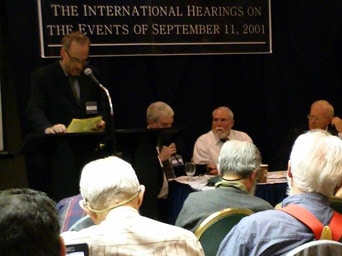In Search of Truth
by Joshua Blakeney
I spent September 8th to 12th in Toronto, Ontario, Canada attending The International Hearings on the Events of September 11, 2001, an event sponsored primarily by James Gourley’s International Centre for 9/11 Studies, which appears to be a mostly virtual entity based in the United States with a web site at International Center for 9/11 Studies
The International Hearings on the Events of September 11, 2001, also referred to as the “Toronto Hearings”, set the following objectives for the hearings:
(1) To present evidence that the U.S. government’s official investigation into the events of September 11, 2001, as pursued by various government and government-appointed agencies, is seriously flawed and has failed to describe and account for the 9/11 events.
(2) To single out the most weighty evidence of the inadequacy of the U.S. government’s investigation; to organize and classify that evidence; to preserve that evidence; to make that evidence widely known to the public and to governmental, non-governmental and inter-governmental organizations.
(3) To submit a record and a summary of the Hearings, together with signed Statutory Declarations by witnesses, to relevant governments, groups and international agencies with the request that a full and impartial investigation be launched into the events of September 11, 2001, which have been used to initiate military invasions and to restrict the rights of citizens.
(4) To engage the attention of the public, the international community and the media through witness testimony as well as through media events broadcasted via the Internet during the four day event.
No sincere 9/11 truth-seeker could dispute the spirit of these objectives, which every member of the 9/11 truth movement ought to employ as a rough guideline for future research and activism.
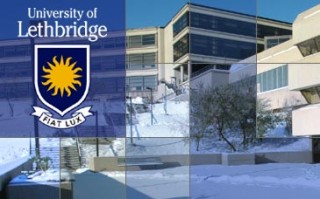
For the past sixteen months, I have been a full time graduate student at the University of Lethbridge working on an MA thesis entitled The Origins of the Global War on Terror: Intellectual Debates and Interpretive Controversies which has been subsidized by the Queen Elizabeth II Graduate Scholarship which I was awarded in November 2010.
I was thus observing the Toronto Hearings as someone who has a decent awareness of what is strong evidence, what is inconclusive evidence and what is irrelevant when it comes to what did and did not happen on 9/11.
To prepare myself for what I anticipated would be a rather technical discussion of nanothermite, I had read three articles by T. Mark Hightower and Professor Jim Fetzer, “Has nanothermite been oversold to the 9/11 Truth Community?”, “Is ‘9/11 Truth’ based upon a false theory?”, and “Nanothermite: If it doesn’t fit, you must acquit!”. Professor Fetzer and I discussed the nanothermite subject prior to my going to Toronto and since my return.
While I am grateful for his assistance, the suggestion that he or Kevin Barrett or T. Mike Hightower ought to have been invited to participate was mine, not his, in case there should be any doubt.
I think their presence would have contributed an element that was largely missing from the Hearings, which is the presentation of conflicting arguments on crucial issues, such as those that have arisen over nanothermite, as I explain below.
[youtube bdLf0KTCcTs]
Joshua Blakeney explains his run-ins with the National Post’s Jonathan Kay.
The Pros of the Toronto Hearings
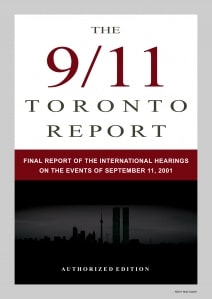
There were many commendable achievements of the Toronto Hearings.
Firstly, they brought together a wide array of researchers, politicians, physicists, journalist, engineers, architects, teachers, academics and citizens who purport to share an interest in what did and did not transpire on 9/11.
Secondly, the steering committee which included Graeme MacQueen, Laurie Manwell, James Gourley, Adnan Zuberi and Kevin Ryan introduced a quazi-judicial format which should be employed by subsequent 9/11 Hearings and which has helped pave the way for future jurisprudence on the subject of 9/11.
Rather than merely having audience members posit questions to presenters, who were referred to as “witnesses”, the organizers commissioned four distinguished panelists to hear the evidence.
These panelists will submit their evaluations of the testimony for the forthcoming Final Report of the International Hearings on September 11, 2001. The structure of the Toronto Hearings was thus exemplary.
By allowing for cross-examination presenters were compelled to be on their toes, which probably made the testimony they gave appear more legitimate and reliable.
Moreover, the allegation that presenters were totally “preaching to the converted” could not be sustained. One panelist, Judge Imposimato, Honorary President of the Supreme Court of Italy, heretofore has never been known to actively promote skepticism towards the official story of 9/11.
Whilst I endorse the structure of the Toronto Hearings and whilst I think about 75% of the content did provide a selection of the “most weighty evidence of the inadequacy of the U.S. government’s investigation”, I think perhaps 25% of the content did not meet this standard and was less relevant than evidence which could have been included in the hearings.
The allegation could be sustained that the organizers squandered about ¼ of the Hearings’ time on what might be called inconclusive evidence or abstract theoretical discussions when more “weighty” and relevant evidence exists, which brings us closer towards the truth of 9/11.
Learning from Experience
The fact that especially Graeme MacQueen, Adnan Zuberi and Laurie Manwell are pleasant, well-intentioned individuals who worked extremely hard to organize the Toronto Hearings should not preclude us from offering constructive criticism of
1) their decision to emphasize certain pieces of “evidence” over others;
2) the statements of individual speakers who spoke at the Hearings;
3) the inclusion of certain presenters over others.
Cognizant of the truism that “nice people can make bad judgments”, I will proceed with constructive criticism of the Hearings in this article whilst also stating what I thought were some of the positive elements of the four day event.
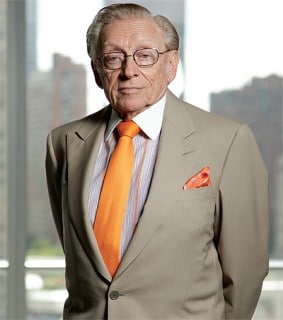
If poor decisions by the steering committee are not criticized by bona fide 9/11 skeptics, then future 9/11-related hearings might replicate the handful of mistakes, which I elucidate in this article.
I therefore believe that we should learn from the achievements of the Toronto Hearings and reject the mistakes. That seems to be the best way for us to progress as the 9/11 Truth Movement develops its juridical personality.
We all hope for future investigations into the events of 9/11. It is integral that when we finally achieve authentic and objective criminal investigations into 9/11 that we’ve been employing a processes of elimination to eliminate irrelevant evidence from our case against individuals, such as Dick Cheney and Larry Silverstein, who stand accused of complicity in the events of 9/11.
My main argument in this essay is that, while much good was done during the Toronto Hearings, a significant amount of time was squandered on topics that if raised in a court of law would be deemed irrelevant to what did and did not happen on 9/11.
On the Issue of Relevancy
After my comrade Splitting the Sky bravely attempted a citizen’s arrest on George W. Bush on March 17, 2009 in Calgary and was arrested for “obstructing a police officer” (who was protecting a credibly accused war criminal), I was able to participate in the March 2010 trial at the Calgary Courts Centre, which many dubbed “The Trial of Splitting the Sky versus George W. Bush.”
As one of a handful of individuals who sat through all of the proceedings, I noted in particular how the issue of relevancy was repeatedly invoked by both the Crown and judge when it came to whether or not evidence of Bush’s crimes was to be included in the record.

If we’re attempting to solve the crime of 9/11, we have to be as specific and relevant as possible with regard to the evidence we adduce. The steering committee, in my view, failed to properly consider relevancy in its inclusion of certain pieces of “evidence” and by their extension of invitations to certain speakers (which in some cases may have involved favouritism trumping reason).
Whilst the steering committee insisted that the Hearings were to be different than conventional academic conferences, many of the presentations were more suited to an academic conference as they were more abstract and theoretical than empirical or evidentiary.
Four Criticisms of the Toronto Hearings
I will argue that the failure to explicitly rule out Let-It-Happen-On-Purpose theory (LIHOP) consistently throughout the proceedings allowed precious time to be wasted with several speakers providing analyses of 9/11 which implied that the U.S. government had allowed bin Laden and al-Qaeda to attack them on 9/11, a theory that had been dispelled by David Ray Griffin on the first day of the proceedings.
I will further attempt to prove that the time dedicated to the discovery of thermetic materials in the dust from the WTC towers was not only highly inconclusive in terms of explaining how the towers were destroyed but that this inconclusiveness was in fact noted by one of the panelists, namely, Professor Richard B. Lee.
[youtube 9kJTigupiJc]
Toronto Hearings’ panelist Professor Richard B. Lee realizes that nano-thermite-as-explosive-theory is being oversold by Kevin Ryan.
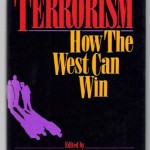
I will bring into question the relevance of the discussion of SCADs (State Crimes Against Democracy) absent a prior determination of whether the “war on terrorism” was primarily contrived by agents of the U.S. state or of the Israeli state.
Documents going back to the 1980s, emanating from Tel Aviv rather than Washington, such as the book Terrorism: How the West Can Win (1986) edited by Benjamin Netanyahu, suggest that the “war on terrorism” was an Israeli inspired initiative.
Many scholars such as Walt, Mearshimer, Petras, Sneigoski and others have demonstrated that the lead protagonists for the “war on terrorism” were “Israel firsters” such as Wolfowitz and Feith, both of whom lost their security clearances in the 1980s for passing classified documents for Israel.
Redundant Cold Warriors such as Cheney and Rumsfeld were just “hangers on” to this Israelocentric initiative, such scholars argue.
The psychological and epistemological discussions included in the Hearings, I will argue, whilst academically interesting, otherwise tell us little about what transpired on 9/11.
Such presentations as the one provided by Laurie Manwell lack direct relevance to 9/11 and hinder attempts to “single out the most weighty evidence of the inadequacy of the U.S. government’s [9/11] investigation.”
A Flawed Definition of Evidence
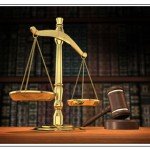
While I generally endorse the organizational structure of the Toronto Hearings and, in particular, the attempt to create a court-like structure for the proceedings, one departure from anything resembling jurisprudence was the decision that the admissibility of “evidence” was contingent on certain unconventional criteria which seemed to run contrary to the stated goal of bringing forth the most weighty evidence.
The Toronto Hearings website, it should be noted, has now removed these criteria, perhaps to conceal their odd methodology. But we can assume that the following key paragraph, heretofore available on their website, provides a good indication of how the purported evidence was “sifted”:
“Evidence presented at the Hearings will be chosen according to the following criteria: high degree of certainty; importance; and consensus. High degree of certainty means that the Hearings will concentrate not on speculation but on facts that can firmly be established.”
“Importance means that the Hearings will concentrate on elements of the governmental explanation that are crucial to that explanation. Consensus means that evidence chosen will be that which is least controversial within the movement of dissent that is critical of the official explanation” (my emphases).
LIHOP versus MIHOP
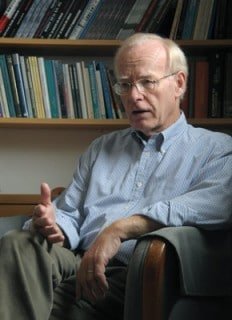
On the first day of the Toronto Hearings David Ray Griffin established that there is no evidence that al-Qaeda or Osama bin-Laden did 9/11.
Although the video of Griffin’s testimony from September 8th is not posted in its entirety on the internet, I explicitly recall someone asking a question of Griffin during the Q&A about bin Laden and him replying that he didn’t feel any need to discuss bin Laden or al-Qaeda as they relate to the events of 9/11, because there is no evidence that they were involved in the events of 9/11.
This, like the vast majority of Griffin’s utterances, is accurate. Griffin’s assertions were supported by the excellent presentation of Jay Kolar on the morning of September 9th.
Firstly, bin Laden denied involvement in the events of 9/11; most, if not all of the alleged hijackers were not Islamists; it is unclear whether or not al-Qaeda even exists as an autonomous and coherent non-state actor; there is no evidence that the alleged hijackers boarded any of the flights on 9/11; and, as Wayne Madsen has revealed, British intelligence documents suggest that the alleged hijacker cells were run and operated by the Mossad.
In a proper court of law, were it established on the first day of the trial that entity X (in this case al-Qaeda) was not involved in the crimes, any subsequent references to it would be omitted so as not to waste the court’s time. Subsequent 9/11 hearings should employ such a process of elimination.
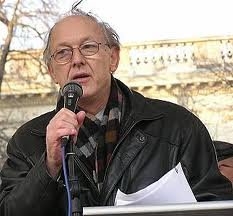
A process of elimination was not displayed during the Hearings; come the afternoon of Day 2 of the Toronto Hearings Professor Michel Chossudovsky, who came through the door at the last minute having arrived from Montreal and who spoke extemporaneously, made repeated references to al-Qaeda, bin Laden, and the complicity of intelligence agencies with Islamists, thereby implying that this was relevant to what transpired on 9/11.
Either al-Qaeda and bin Laden were involved in 9/11 or they weren’t.
It cannot be both. Perhaps Chossudovsky was chosen to speak not because of what he says about 9/11, which reinforces the myth of al-Qaeda involvement in 9/11 leading an investigation into 9/11 on a wild goose chase, but rather because of his credentials.
This may have also been the case with Professor Peter Dale Scott, who spoke of the alleged al-Qaeda hijackers boarding Flight 77, even though the speaker immediately before him, David Ray Griffin, had explained at length that it was simply impossible that “al-Qaeda hijackers” had taken control of Fight 77 on 9/11.
[youtube MdHsGZ4UG_I]
Footage of David Ray Griffin being contradicted by Peter Dale Scott at The Toronto Hearings.
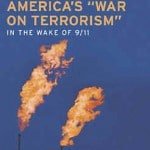
Either al-Qaeda hijackers hijacked Flight 77 or they did not. Either Griffin is right and Scott is wrong or vice versa. The organizers–by failing to critically analyze the prior statements of Chossudovsky and of Scott–both of whom seem to be stuck in an “al-Qaeda were involved in 9/11” analysis–allowed the Toronto Hearings to hear testimony whose relevance to the events of 9/11 is highly tenuous.
Indeed one cannot help but wonder if these individuals were chosen not because they bring forth evidence about which there is “[a] high degree of certainty; importance; and consensus”, but rather because they are big names whose credentials would make the hearings look credible–even if their testimony would regress the quest for truth and justice by taking the Hearings off course.
In other words, despite all the stated rigid criteria aimed at sorting strong from weak evidence, the organizers possibly committed the fallacy of appealing to the authority of the names of two famous researchers who are perhaps famous and less persecuted because, unlike more rigorous 9/11 researchers (for example, Barrett and Fetzer), they parrot the al-Qaeda myth thus indirectly aiding and abetting those culpable for 9/11.
Appeals to Authority
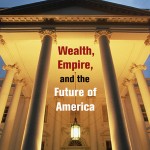
Could it be that Peter Dale Scott’s Road to 9/11 (2007) was published by a major print house because it wasn’t subversive to those in power? After all in his works Scott has mainly emphasized the historic role played by “al-Qaeda” in the imperialism of the United States.
Whilst this history is interesting it tells us little about 9/11, which appears neither to have been done by Islamists nor to have primarily advanced Big Oil’s desired policies.
Rather, it seemingly involved the Mossad-controlled, mostly secular patsies and represented a coup d’état by a Zionist faction of the ruling class in order to implement policies which departed markedly from the traditional U.S. Middle East imperial policy of fostering stability for oil markets through the propping up of Arab strongmen like Saddam Hussein.
And could Michel Chossudovsky be so highly successful because he draws attention away (perhaps for emotional or ideological reasons) from the fact that the whole “war on terrorism” was concocted by Likudnik Zionists to shift U.S. imperial policy in a direction desired by them?
The invitation extended to individuals who wrongly testified that al-Qaeda were involved in 9/11, such as Scott and Chossudovsky, appears to have been at least in part intended by the organizers to promote a favorable public reception of the Toronto Hearings.
That very objective was implied toward the end of the Toronto Hearings by steering committee member Laurie Manwell, who explained that they had gone to great length to project the Hearings in a way that would appeal to the mainstream media as a public relations strategy.
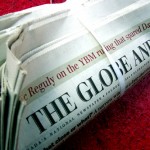
Holding up the two mediocre news reports by The Globe and Mail and The National Post on the Hearings, she candidly stated that the steering committee had “deliberately” framed the Hearings to curry favour with those whom many of us regard as 9/11-cover-up artists in the mainstream media.
Unfortunately, this provides insight into the steering committee’s methodology, which departs from recognized means of discerning truth as a court of law would do and places politics before science.
Either the Toronto Hearings were intended to prioritize the most compelling evidence (even if it was politically incorrect) as a court of law would do or the steering committee tried to fashion the Hearings relative to the bigoted, 9/11-cover up artists in the corporate media.
The controversial decision of the Toronto Hearings to include the least controversial evidence within the Truth Movement represented an abandonment of the traditional approach to truth-seeking, which should be divorced from political correctness, since “controversial” evidence can be true and non-controversial “evidence” can be false or redundant.
The Deeper Problem
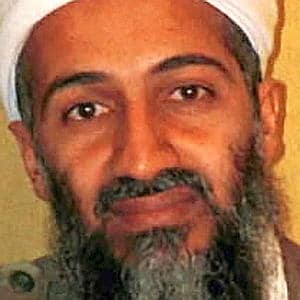
It can be argued therefore that of the nineteen or so “testimonies” given over the four day period of the Toronto Hearings at least two, those of Scott and Chossudovsky, were mostly superfluous due to the fact that they endorsed the myth that Osama bin-Laden and al-Qaeda were involved in 9/11, even though, as was established on Day 1 by David Ray Griffin, Day 2 by Jay Kolar and again on Day 4 by Griffin, neither were actually involved.
To have a discussion of the political motives for 9/11 without including a discussion of Israeli geopolitics, whilst perhaps gratifying to the pro-Israel National Post, is highly displeasing to those of us who’ve worked hard to expose the multiple Israeli connections to 9/11.
The vagaries about al-Qaeda in relation to 9/11 offered by Chossudovsky and by Scott could have been replaced by more apposite testimony coming from scholars, such as Professor James Petras, a distinguished sociologist who has demonstrated that the “war on terrorism” has a lot more to do with Israel than Big Oil and who, unlike the Hearings, includes the evidence of Mossad involvement in 9/11, such as “the Dancing Israelis”, in his analysis of 9/11 and of “the war on terrorism”.
Furthermore, whilst the testimony provided by Senator Mike Gravel was politically inspiring, it too had little to do with what did or did not happen on 9/11, which brings into question its relevance in the Hearings, the ostensible goal of which was to refute the official account of 9/11.
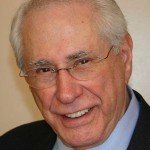
One can imagine defenders of the official story of 9/11, say for example Dick Cheney’s legal team, hearing this “weighty evidence” and opining “Is that all you’ve got?” when in fact there is a great deal of more compelling evidence, which unfortunately is indeed “controversial” and was thus omitted from the Toronto Hearings.
The best way of course to avoid controversy during International Hearings on The Events of September 11, 2001, is to simply not talk directly about what transpired on 9/11.
This was the case with the presentations of Laurie Manwell and Mike Gravel who gave compelling and insightful presentations but whose testimony seems to have deviated from the stated goal of the steering committee to “single out the most weighty evidence of the inadequacy of the U.S. government’s investigation.”
Manwell’s presentation barely touched on the events of 9/11, instead offering an abstract discussion more suited for an academic conference on the subject of the psychology of beliefs.
Manwell even acknowledged in her presentation that some of the presentations at the Hearings departed from what she called the “direct approach” of presenting direct evidence of a false belief and employed an “indirect approach” by focusing more on the form of false beliefs rather than the content of the them.
Since she suggests that the presentation of evidence can strengthen false beliefs, had her “indirect approach” been rigorously followed during the Hearings, evidence that strongly refutes the official account would have probably been excluded–which would have contradicted the avowed objectives and criteria upon which they were based and would appear to be the most extreme form of putting 9/11 politics ahead of science.
[youtube NCY_vopQbRk]
Laurie Manwell speaks at the Toronto Hearings about the psychological resistance to alternative theories. While this presentation is of high academic quality its relevance to what did and did not happen on 9/11 is questioned in this article.
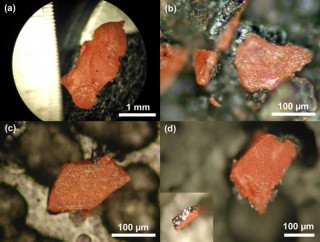
The Nanothermite Challenge
What was ostensibly the greatest strength of the Toronto Hearings—that they were meant to highlight the relatively recent scientific findings of the Steve Jones/Kevin Ryan/Neils Harrit group, especially in relation to the co-authored Bentham Science Chemical Physics Journal article that has been received with such approval by the 9/11 Truth community—may have been its Achilles heel.
Having studied articles by T. Mark Hightower and Professor Fetzer about the exaggeration by the Steve Jones/Kevin Ryan/Neils Harrit group of the capabilities of nanothermite, including “Has nanothermite been oversold to the 9/11 Truth community?” and “Is ‘9/11 Truth’ based upon a false theory?”, which suggest that nanothermite cannot possibly have been responsible for the explosive destruction of the Twin Towers, I was especially concerned as to how this “nanothermite challenge” would be met.
I wish I could report that Ryan and Harrit, who were present, were able to sustain the scientific integrity of a research program initiated by Steven Jones, who was not, but I am afraid the results were decidedly mixed.
Even though Hightower has been explicit about his discovery—based upon an extended search of the literature—that nanothermite lacks the explosive properties that have been widely attributed to it, his findings were neither reported nor discussed during the Toronto Hearings.
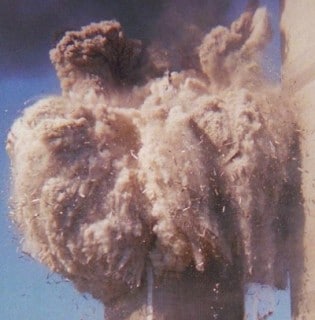
This would have been a very difficult issue under any conditions, but the relatively incestuous citations of Harrit by Ryan and of Ryan by Harrit did little to lay to rest the concerns raised by Hightower’s finding that nanothermite has a detonation velocity of only 895 m/s, which means it can neither pulverize concrete nor shatter steel by means of its shockwaves, which would require detonation velocities equal to the speed of sound in those materials of 3,200 m/s and of 6,100 m/s.
Since virtually all sides agree that the Twin Towers were destroyed by being exploded from the top down (where explosions exert forces in every direction, while gravity does so only in one), that nanothermite cannot have performed that feat suggests that the 9/11 Truth Movement and the Toronto Hearings have succumbed to a red herring.
This was twigged by one of the distinguished panelists Professor Richard B. Lee who questioned the relevancy of nanothermite to the destruction of the towers during one of Kevin Ryan’s lectures.
I was hoping that these representatives of the “hard science” group would graciously concede that the properties of nanothermite have indeed been “oversold”, which would open investigation as to how the destruction of the Twin Towers was actually done—possibly including unconventional mechanisms such as mini-nukes or the censored directed-energy alternative—but my hopes were not fulfilled when Niels Harrit, in particular, suggested that, in the age of nano-technology, perhaps the distinction between incendiaries and explosives no longer matters!
Such speculation, I am sorry to say, does not provide a solution to the problem and most certainly does not meet “the nanothermite challenge”.
Weighing the Pros and Cons
The avowed objectives of the Toronto Hearings were admirable and the organizational structure of the meeting was highly appropriate.
There can be no doubt that the evidence brought forth in the presentations of Cynthia McKinney, Jay Kolar, Paul Zarembka, Barbara Honegger, Graeme MacQueen and David Ray Griffin met and went beyond the standard of providing the most “weighty” evidence belying the official story of 9/11.
However, the use of criteria of selection that valued absence of controversy over scientific truth was a blunder. Putting primacy of public relations ahead of the science of 9/11 could only move the “hard science” group in the direction of the lowest common denominator.
While Laurie Manwell was given ample time to explain, for example, what part of our brain causes us to defer to authority, many important aspects of 9/11 were given only short shrift.
There was a failure to provide an extensive discussion of the absence of any evidence of a Boeing 757 at the Pentagon which was probably its most glaring failure–apart from the clear impression of wanting to paper-over the scientific limitations of appealing to a substance that cannot have been responsible for blowing apart the Twin Towers as though it could have been, which may leave a bitter-sweet taste for those who were there, when they finally put “2” and “2” together. This is a problem that is not going to go away.
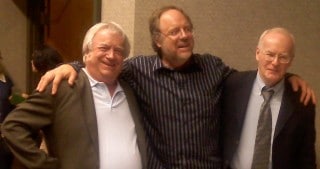
Since the Toronto Hearings were modeled on a judicial procedure, the adversarial method should have been embraced by bringing T. Mark Hightower, at least, and probably Professor Jim Fetzer as well to contest the views that were being presented.
If this had been done the judges would have had a firmer basis to reach conclusions and the “hearings” might have had a stronger claim to its own name. Supplanting truth with banality is a recipe for castrating the 9/11 Truth Movement as a force for good.
Some of the truths we have discovered may have far more potential to capture the imagination of the public than even the most extensive discussions of how an incendiary might possibly be reworked to function as a high explosive. For the life of me, I cannot see how such an approach has any potential for capturing the imagination of the public or leading us towards proper criminal investigations into 9/11.
Illuminating the fact that no plane hit the U.S. military command and control center, or that five Israelis but no Muslims were arrested on 9/11, might do it, but the unproven, speculative nanothermite hypothesis advanced in particular by Harrit during the Hearings along with Manwell’s abstract psychoanalyses would in a court of law be dismissed as lacking direct relevance to the crimes perpetrated on 9/11.
Will the Censorship of the Israeli Connection to 9/11 Continue?
[youtube zx9q5N8iV68]
An Israeli agent confesses to foreknowledge of 9/11.
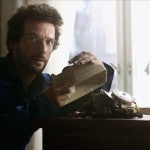
As someone who recently viewed “Munich,” the Stephen Speilberg film about Mossad agents seeking retribution for Black September, I was surprised to see one of the onscreen Mossad agents present at the Toronto Hearings.
There I was shoving bacon and eggs down my throat, demonstrating to all that in a previous incarnation I was indeed an English hooligan, when Pernille Grumme (Niels Harrit’s partner) and French actor Mathieu Kassovitz sat down to ask me several questions relating to 9/11. It turns out that Mathieu has an interest in 9/11 and, at least on the surface (he is an actor you know), seemed very concerned with the cover-up of 9/11.
Mathieu Kassovitz in fact pledged $50,000 for Senator Mike Gravel’s ballot initiative for which we must all be grateful. As a result of his concern for 9/11 Mathieu Kassovitz was allowed to speak at the Hearings and has expressed an interest in making a film about 9/11.
As more and more of us are exposing the Israeli involvement in 9/11 one cannot help wondering if Mathieu for ideological reasons will exclude this evidence, as the Toronto Hearings did, from any forthcoming 9/11 films. The Spielberg movie in which he starred was certainly a pro-“war on terrorism” film, which portrayed Arabs as expendable, murderous terrorists and Kassovitz and his fellow onscreen Mossad agents combating Arab barbarism jus in bello.
[youtube UicIYdkFPPo]
Mathieu Kassovitz provides an impromptu speech at the Toronto Hearings.
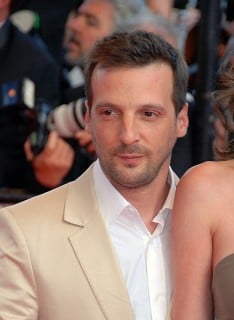
The inconsistency between LIHOP and MIHOP, the failure to confront “the nanothermite challenge”, and ignoring evidence implicating the Mossad in 9/11 were perhaps the most glaring failures of the Hearings.
But I am sure that others were as astonished as I to hear Kevin Ryan, of all people, apologizing for the inadequacies of the work of the NIST scientists on the ground that he did not doubt their “honest work” which was revised and tweaked by their supervisors, who conveyed false impressions.
But he doesn’t explain how he could possibly know this.
It would have been far better if there had been less political correctness and more truth, both in the hearings and in this film, because there can be no doubt that the controversial decision to sideline “controversial evidence” has had the effect of suppressing truths about 9/11 which might unintentionally and lamentably make the forthcoming Final Report of the International Hearings on September 11, 2001 far less persuasive than it otherwise might have been.
[youtube SnmfoCapiqc]
Kevin Ryan describes the 9/11-related work of NIST scientists as “honest work”.
ATTENTION READERS
We See The World From All Sides and Want YOU To Be Fully InformedIn fact, intentional disinformation is a disgraceful scourge in media today. So to assuage any possible errant incorrect information posted herein, we strongly encourage you to seek corroboration from other non-VT sources before forming an educated opinion.
About VT - Policies & Disclosures - Comment Policy

